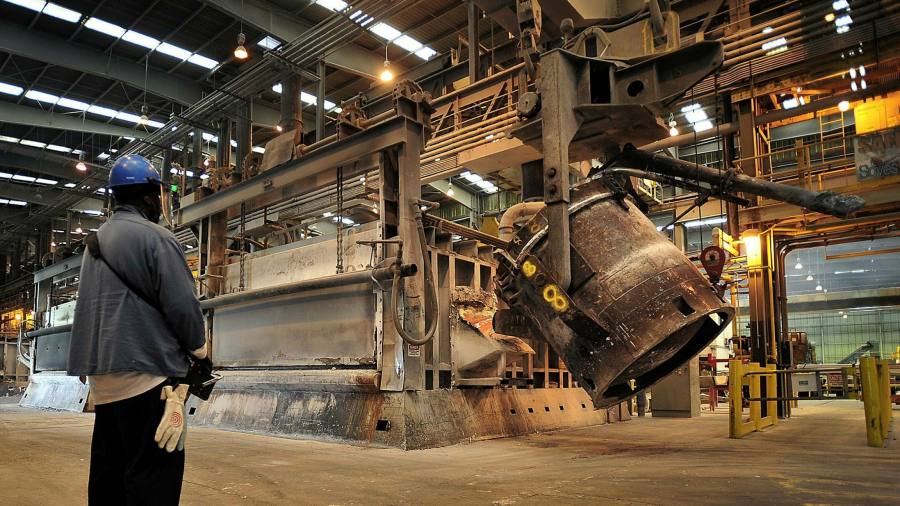[ad_1]
US industrial group Alcoa stepped up the battle to reduce emissions as it announced plans to supply aluminium to German carmaker Audi using new technology that will involve a zero-carbon smelting process.
The aluminium will be used for the wheels of Audi’s new electric vehicle, the e-tron GT sports car, as Alcoa looks to commercialise a technology without any direct carbon dioxide emissions.
It will be the second time the company has used the zero-carbon metal after Apple’s MacBook Pro laptop, the company said.
The technology, which was invented by the US group, could help reduce emissions in one of the world’s most polluting industries.
Production of aluminium is responsible for about 1bn tonnes of greenhouse gas emissions a year, 2 per cent of the total emitted annually.
Last year, China’s aluminium production released more carbon dioxide than the entire country of Indonesia, according to the think-tank Ember.
It comes as aluminium producers face growing pressure from customers such as electric carmakers to reduce carbon emissions from making the metal, which requires large amounts of electricity.
In February, German carmaker BMW agreed to buy aluminium produced using solar power from Emirates Global Aluminium.
“Aluminum is the focus of our CO2 programme because producing this material requires a high energy input,†Marco Philippi, Audi head of procurement strategy, said.
“These kinds of innovations allow us to increase our sustainability performance in the supply chain and ensure that our models arrive at the customers with a smaller carbon footprint.â€
Aluminium is set to be increasingly used in cars and trucks because it is lighter than steel, which allows vehicles to go further on one charge.
Alcoa expects aluminium demand from the transport industry to increase 41 per cent by 2025.
An average electric vehicle uses 100 kilogrammes more aluminium than an equivalent internal engine combustion car, according to Tim Reyes, chief commercial officer of Alcoa.
The most significant way to decarbonise aluminium is to use renewable energy to power its production. But Alcoa’s process goes even further and cuts emissions from the materials used in the smelting process.
In the traditional aluminium smelting process, in use for more than 100 years, a carbon anode is placed in a bath that contains alumina and other materials. A strong electrical current is then passed through the bath to produce aluminium.
Alcoa’s technology replaces the carbon anode with a proprietary inert material, which means the process only emits oxygen.
In 2018, Alcoa licensed the technology to a joint venture with Rio Tinto called Elysis. Based in Montreal, the company is backed by Apple as well as the governments of Canada and Quebec.
The International Aluminium Institute said this month that inert anode technologies that emit oxygen instead of CO2 “will play an important role in emissions reduction†for the industry along with switching to renewable sources of energy.
[ad_2]
Source link





